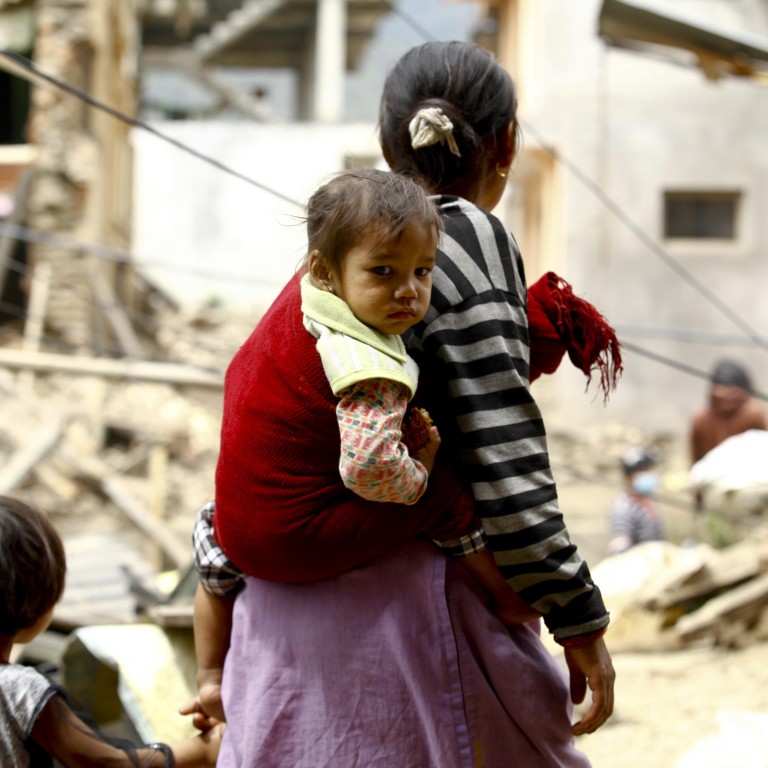
Nepal needs much more than fleeting focus and handouts
Kevin Rafferty says hope for the future depends on an engaged world
Death and destruction have dominated the past week's news. Mass media deserted the terrible tragedy of migrants fleeing conflicts in the Middle East and being smuggled to Europe in overladen boats. They had found a more powerful disaster, and rushed to earthquake-savaged Nepal.
Heart-wrenching scenes in Kathmandu of bewildered people amid the rubble of ancient temples vividly beamed personal tragedies of life and death into comfortable living rooms thousands of kilometres away.
As a simple human example of the confusion three days after the quake, one man said sadly that he had received a single packet of noodles to eat but did not know whether it had been provided by the government or by some NGO.
The wretched lesson is that the media and, more importantly, our politicians, from the US to Asia, do not understand the needs of a changing world: they respond to the dramatic moment, but fail to tackle deep underlying problems.
Poor landlocked Nepal was defenceless against the fury of nature. The death toll may reach 10,000, small enough for a global catastrophe, but a devastating blow to an impoverished Nepal.
The cost of reconstruction in a country where unemployment is 40 per cent and per capita income is US$1,000, may reach US$10 billion, or half of Nepal's gross domestic product, according to the US Geological Survey. The damage to infrastructure and the economy will take years to put right. Tourism, which accounts for 10 per cent of the economy, has been buried under the temples.
Foreign media and international aid-givers are out in force. Mid-week, there was no space for incoming relief aircraft on the tarmac at Kathmandu, so they had to circle for several hours. Will they be there when the reconstruction is faltering more than a year hence?
In Nepal 40 years ago, I remember the grubby five-year-old boy washing glasses at the family restaurant in Kathmandu: he was there at 10pm and at 6.30 the next morning, always smiling. Was he a child labour victim - or just doing what he had to do to stay alive?
Trekking in the valley, we exchanged greetings with villagers carrying huge hacked chunks of wood on their backs and smaller branches strapped to their heads to cook the family meal. Was this despoliation of precious forest and environmental degradation - or just doing what they had to do to stay alive?
At Kathmandu airport, the Royal Air Force VC-10 did a brilliant tight turn to land and disgorge British Gurkha soldiers coming home on leave, clutching electronic gear and children with teddy bears bigger than themselves. Were they mercenary soldiers of fortune - or following a fine fighting tradition linking Nepal and the UK going back to 1817?
Nepal has lagged behind other Asian countries because of a mixture of ingrained landlocked poverty and unsettled politics, which saw a paternalistic Eton-educated king murdered in a palace feud, succeeded by his autocratic brother who was himself overthrown when the monarchy was abolished in 2008.
Being sandwiched between India and China has not helped Nepal unleash the undoubted energy and talents of its people, but has created new mischief for politicians to play.
Stronger economic development would not have stopped the earthquake devastation, but it would have given Nepal a fighting chance of recovery.
The question is what will be Nepal's path after the media have gone home? Will it return to being a quaint mysterious land of the mountain gods, forgotten until another tragedy hits? Or could it become a model for cooperation between the World Bank, the Asian Development Bank and China's new development institutions?
It is hard to be optimistic looking at self-seeking Nepali politicians and their opportunistic neighbours, or how rich countries have turned inward. The world has become more global, but politicians and press are parochial.
Restoring hope to Nepal requires a lively dialogue between local leaders and an engaged world, but it appears that only China has an involved view of the world.

